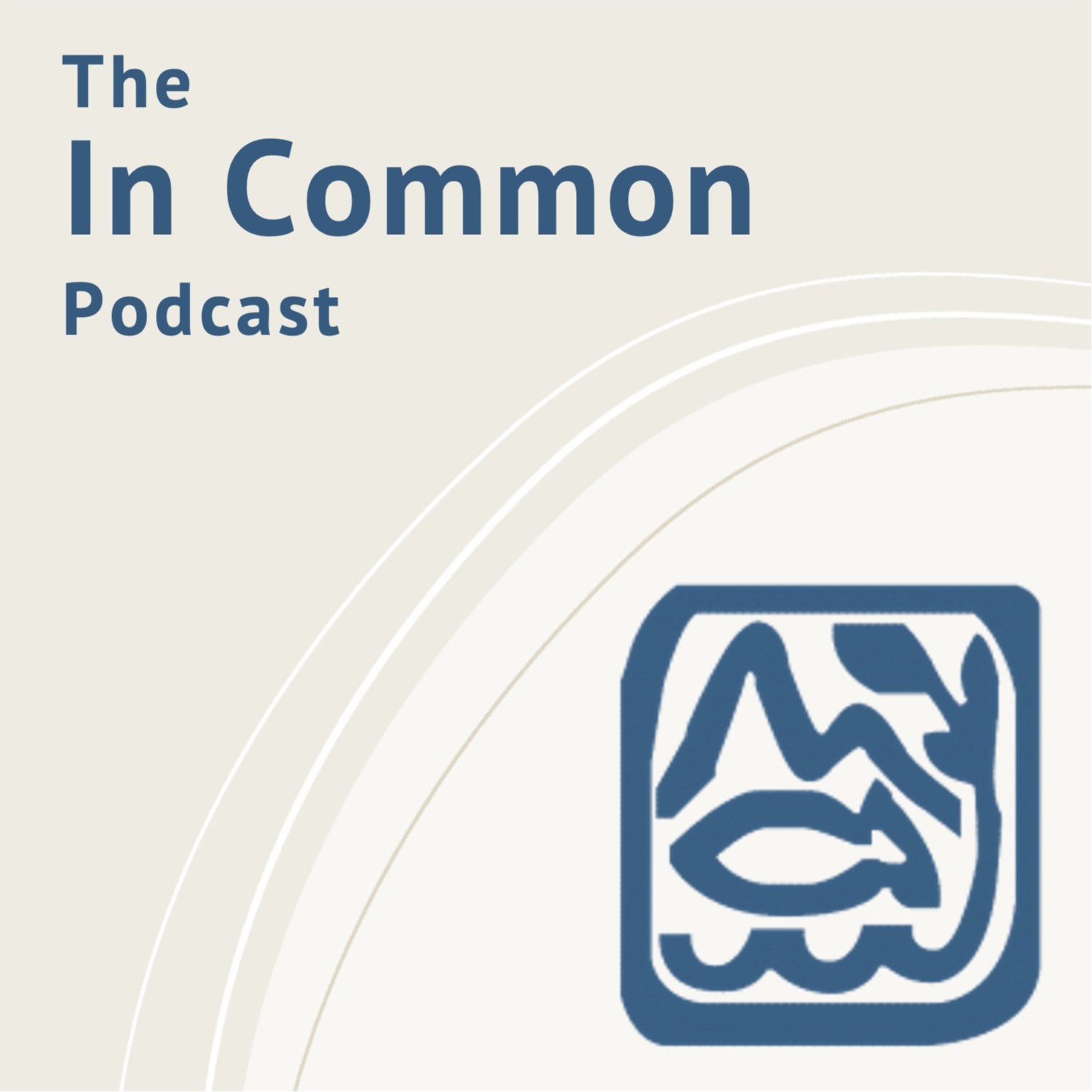
105.2K
Downloads
238
Episodes
In Common explores the connections between humans, their environment and each other through stories told by scholars and practitioners. In-depth interviews and methods webinars explore interdisciplinary and transdisciplinary work on commons governance, conservation and development, social-ecological resilience, and sustainability.
In Common explores the connections between humans, their environment and each other through stories told by scholars and practitioners. In-depth interviews and methods webinars explore interdisciplinary and transdisciplinary work on commons governance, conservation and development, social-ecological resilience, and sustainability.
Episodes

Friday Jun 24, 2022
Friday Jun 24, 2022
This insight episode comes from full episode sixty, Stefan's conversation with Emily Boyd.
Emily is the Director of Lund University Centre for Sustainability Studies and Professor in Sustainability Science, as well as a leading social scientist with a background in international development, environment, and climate change.
Stefan and Emily talk about the benefits and challenges of an interdisciplinary education and approach to sustainability issues, specifically how to communicate and work with people from different fields, as well as how universities can work to support interdisciplinary training.
Emily Boyd is also an author for the IPCC, IPBES, and UKCCRA and is an Earth System Governance Senior Fellow.
https://www.lucsus.lu.se/emily-boyd
https://scholar.google.de/citations?user=CatOY9oAAAAJ&hl=de&oi=ao
In Common Website: https://www.incommonpodcast.org
Connect with us on Twitter: https://twitter.com/InCommonPod
Support us on Patreon: https://www.patreon.com/incommonpodcast
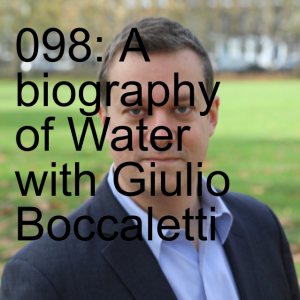
Monday Jun 13, 2022
098: A biography of Water with Giulio Boccaletti
Monday Jun 13, 2022
Monday Jun 13, 2022
In this episode, Dustin and Hita speak with Giulio Boccaletti, a writer, entrepreneur and honorary research associate at the Smith School of Enterprise and the Environment at the University of Oxford. They discuss Giulio’s recent book, Water: a Biography, which he started writing during his former role as Chief Strategy Officer at The Nature Conservancy. In the book, Giulio traces the relationship between water and humanity from ancient civilizations and the Roman empire to the American West and China. He argues that the rise of the modern republic is linked to the central role water had in society, and he calls for a new era of constitutional reform that accounts for environmental and climate change. They discuss the political and institutional theory at the heart of the book, and several of its arguments and case studies, highlighted by the Tennessee Valley Authority. They conclude with brief reflections from Giulio on conservation strategy and practice, and the challenges of legitimacy in community-based conservation initiatives.
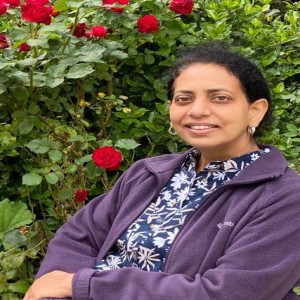
Monday May 30, 2022
Monday May 30, 2022
In this episode, Divya speaks with Dr. Ghazala Shahabuddin. Ghazala is an ecologist based in India, where she currently teaches at the Ashoka University and is also working on multiple projects focusing on the ecological and institutional aspects of decentralized forest management, conservation, wildlife policy and politics, and community-based ecotourism.
They talk about Ghazala’s important work on conservation-induced displacement in India, which she has written extensively about in several books and articles (links below), particularly her books: Conservation at the Crossroads: Science, Society and the Future of India’s Wildlife and Making Conservation Work (co-edited with Dr. Mahesh Rangarajan). They also discuss Ghazala’s ongoing work on the impacts of land-use change on natural ecosystems and community-based ecotourism in the mid-Himalayan region of India. Ghazala's work although diverse, we see that the common themes cutting across her work are the role of science in informing human dimensions of environment and policy, local people and histories in conservation, and the role of context-specific studies in informing global discourses on climate change and development.
More information on Ghazala’s work: https://www.researchgate.net/profile/Ghazala-Shahabuddin
References:
Shahabuddin, G. (2010). Conservation at the crossroads: science, society, and the future of India's wildlife. New India Foundation.
Shahabuddin, G., & Rangarajan, M. (Eds.). (2007). Making conservation work: Securing biodiversity in this new century. Permanent Black.
Shahabuddin, G., Goswami, R., & Gupta, M. (2017). An annotated checklist of the birds of banj oak–chir pine forests in Kumaon, Uttarakhand. Indian Birds, 13(2), 29-36.
Shahabuddin, G., Goswami, R., Krishnadas, M., & Menon, T. (2021). Decline in forest bird species and guilds due to land use change in the Western Himalaya. Global Ecology and Conservation, 25, e01447.
Shahabuddin, G. (2021). Lived in the lived landscape: A decade of insights. Sanctuary Asia, 41(10).
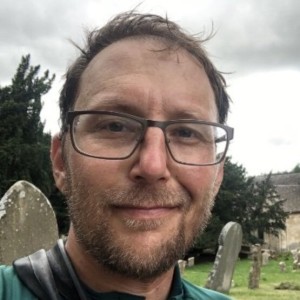
Monday May 23, 2022
Monday May 23, 2022
In this episode Hita and Michael spoke with Dustin Garrick who is an Associate Professor at the School of Environment, Resources, and Sustainability at the University of Waterloo, Canada and a research fellow at Green Templeton College, University of Oxford. We discussed how his passion for rivers led Dustin to move between theory and practice to understand the scope - and limits - of water markets as part of struggles toward more sustainable water management. Starting in the Colorado and Columbia Rivers of North America, Dustin’s work has led to a broader intellectual project to examine the institutional diversity and evolution of water markets, working with a network of partners across the world, to understand whether and under which conditions, different resource users and communities can “use markets without being abused by them”. We also spoke about the critiques of some predominant market based approaches to natural resource governance such as cap-and-trade systems and more free market environmentalism. . We touched upon some of his more recent work on informal water markets, and his growing interest in collective action across the rural-urban divide, which led to the development of a global database on rural-urban water conflict and cooperation that he has developed along with some of his colleagues. Dustin also reflected upon his engagement with large international development organisations such as the World Bank, OECD and global conservation organisations. He stressed that these organisations are not monolithic entities. t They are composed of groups of people with varied perspectives, interests and expertise, including many who share a focus on political economy and informality. Yet, these organisations also face practical and political constraints, that can lead to panacea thinking and otherwise limit the range of institutions and interests considered. We ended with a note on the importance of developing and diversifying one’s mentoring networks, while forging our own academic and non-academic pathways and trajectories. Dustin is currently involved in a book project on “Uncommon Markets”, the details of which may be found here: https://www.aaas.org/news/aaas-leshner-fellow-dustin-garrick-launches-uncommon-markets-book-project
Dustin’s institutional website: https://uwaterloo.ca/environment-resources-and-sustainability/people-profiles/dustin-garrick
Some of the references we discuss in this interview are listed below:
- Neuman, Janet C., The Good, the Bad, the Ugly: The First Ten Years of the Oregon Water Trust. Nebraska Law Review, Vol. 83, pp. 432-484, 2004, Available at SSRN: https://ssrn.com/abstract=985401
- Garrick, D. E. (2015). Water allocation in rivers under pressure: Water trading, transaction costs and transboundary governance in the Western US and Australia. Edward Elgar Publishing.
- Garrick, D., O’Donnell, E., Damania, R., Moore, S., Brozović, N., Iseman, T. 2019. Informal water markets in an urbanising world: some unanswered questions. © World Bank.
- Garrick, Dustin, Lucia De Stefano, Laura Turley, Isabel Jorgensen, Ismael Aguilar-Barajas, Barbara Schreiner, Renata de Souza Leão, Erin O’Donnell, and Avril Horne. 2019. “Dividing the Water, Sharing the Benefits: Lessons from Rural-to-Urban Water Reallocation.” World Bank, Washington, DC.
- Williamson, E.O. 1981 “The Economics of Organization: The Transaction Cost Approach.” American Journal of Sociology 87( 3): 548–77. http://www.jstor.org/stable/2778934.
- Marshall, G.R. 2005. Economics for Collaborative Environmental Management: Renegotiating the Commons. London: Earthscan Publications.
- Ostrom, E. 2009. Understanding institutional diversity. In Understanding Institutional Diversity. Princeton university press.
- North, D.C., 1991. Institutions, ideology, and economic performance. Cato Journal, 11: 477.
- Ostrom, E.E., Dietz, T.E., Dolšak, N.E., Stern, P.C., Stonich, S.E. and Weber, E.U., 2002. The drama of the commons. National Academy Press.
- Scott, J.C., 2008. Seeing like a state. In Seeing Like a State. Yale University Press.
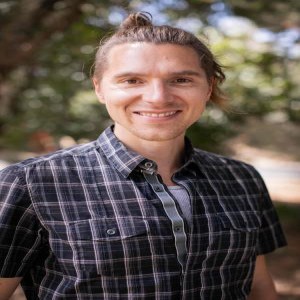
Monday May 16, 2022
095: Agrarian reforms and the property rights gap with Mike Albertus
Monday May 16, 2022
Monday May 16, 2022
In this episode, Michael speaks with Mike Albertus, associate professor of Political Science at the University of Chicago. They talk about Mike’s most recent book, Property Without Rights: Origins and Consequences of the Property Rights Gap. In the book, Mike is studying the results of agrarian reforms in Latin America, which are designed to redistribute land to rural peasants. Many of these reforms have left a “gap”, or a lack of formalization, defensibility, and alienability of these new rural land rights. Mike’s main thesis of the book is that this gap has persisted in large part because of strategic decisions by national governments to keep rural landowners dependent on the state for their livelihood. Mike and Michael discuss this thesis as well as several other related arguments in the book.
Mikes website: http://www.michaelalbertus.com/
References:
Albertus, M. 2021. Property without Rights: Origins and Consequences of the Property Rights Gap. Cambridge University Press.
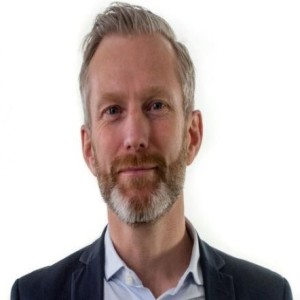
Friday May 13, 2022
Insight Episode #37: Henrik Österblom on unsustainable science
Friday May 13, 2022
Friday May 13, 2022
This insight episode comes from full episode sixty-two, Michael and Stefan's conversation with Henrik Österblom.
Henrik is the Science Director of the Stockholm Resilience Center and a Professor at the University of Stockholm in Sweden.
In this episode, Henrik talks with Michael and Stefan about his piece in One Earth, “Unsustainable Science,” which thinks about the idea that being busy is equivalent to doing well. The three look at the pressure produced by the treadmill of papers and funding in academia, and discuss how more productive and sustainable solutions can be created through slowing down and talking with one another, rather than competing for the same end goals.
Henrik's SRC page: https://www.stockholmresilience.org/meet-our-team/staff/2008-01-09-osterblom.html
Unsustainable Science: https://www.cell.com/one-earth/fulltext/S2590-3322%2819%2930017-X?_returnURL=https%3A%2F%2Flinkinghub.elsevier.com%2Fretrieve%2Fpii%2FS259033221930017X%3Fshowall%3Dtrue
In Common Website: https://www.incommonpodcast.org
Connect with us on Twitter: https://twitter.com/InCommonPod
Support us on Patreon: https://www.patreon.com/incommonpodcast

Monday May 09, 2022
Science and Practice #1: Conservation and social science with Nathan Bennett
Monday May 09, 2022
Monday May 09, 2022
This is the first episode of a new series of the podcast that we are calling "Science and Practice". In this series we will be interviewing guests who conduct applied work on environmental governance and conservation and who often act at the interface of such work and the scientific study of these topics.
In this episode, Michael talks with Nathan Bennett, an Independent Consultant who has worked with several national and international organizations including the Nature Conservancy, Parks Canada, Environment Canada, Comunidad y Biodiversidad in Mexico, and the Smithsonian Institute. Nathan is also the Chair of the People and the Oceans Specialist Group for the International Union for the Conservation of Nature (IUCN). During their conversation, Michael asks Nathan about his role in bridging academic and practice-based work and the role that policy panaceas can play in each of these spaces. In his response, Nathan describes a more diagnostic approach that considers the relative costs and benefits of different types of marine policies as an important alternative to panacea thinking. They conclude the conversation by talking about Nathan's work on the role of social science in conservation and the challenges and promise of doing interdisciplinary work for conservation.
Nathan's website: https://nathanbennett.ca/
References:
Bennett, N. J., R. Roth, S. C. Klain, K. Chan, P. Christie, D. A. Clark, G. Cullman, D. Curran, T. J. Durbin, G. Epstein, A. Greenberg, M. P. Nelson, J. Sandlos, R. Stedman, T. L. Teel, R. Thomas, D. Veríssimo, and C. Wyborn. 2017. Conservation social science: Understanding and integrating human dimensions to improve conservation. Biological conservation 205:93–108.
Bennett, N. J., T. S. Whitty, E. Finkbeiner, J. Pittman, H. Bassett, S. Gelcich, and E. H. Allison. 2018. Environmental Stewardship: A Conceptual Review and Analytical Framework. Environmental management 61(4):597–614.
Bennett, N. J., A. Calò, A. Di Franco, F. Niccolini, D. Marzo, I. Domina, C. Dimitriadis, F. Sobrado, M.-C. Santoni, E. Charbonnel, M. Trujillo, J. Garcia-Charton, L. Seddiki, V. Cappanera, J. Grbin, L. Kastelic, M. Milazzo, and P. Guidetti. 2020. Social equity and marine protected areas: Perceptions of small-scale fishermen in the Mediterranean Sea. Biological conservation 244:108531.

Monday May 02, 2022
Monday May 02, 2022
This insight episode comes from full episode 059, Michael's conversation with Brent Loken.
Brent is a Global Food Lead Scientist at the World Wildlife Fund.
In this episode, Brent talks with Michael about the importance of understanding how the conversion of land to agricultural-based uses and the other major environmental impacts of large-scale agriculture are intimately related to our ability to attain animal conservation and other environmental goals, as well as differing ideas of how best to use land and the politics surrounding these issues.
Brent's Information:
Website: https://www.worldwildlife.org/experts/brent-loken
Twitter: @brentloken
Email: brent.loken@wwf.org
In Common website: https://www.incommonpodcast.org
Connect with us on Twitter: https://twitter.com/InCommonPod
Support us on Patreon: https://www.patreon.com/incommonpodcast
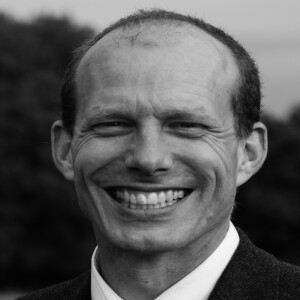
Monday Apr 25, 2022
094: Protected areas with Dan Brockington
Monday Apr 25, 2022
Monday Apr 25, 2022
In this episode, Michael and Stefan speak with Dan Brockington, Professor and director of the Sheffield Institute for International Development at the University of Sheffield. They talk to Dan about his important work on protected areas, and in particular two books he has written on the subject: Fortress Conservation: The Preservation of the Mkomazi Game Reserve, Tanzania, and Nature Unbound: Conservation, Capitalism and the Future of Protected Areas. They discuss the distinction between reality and (sometimes true) myths that help to sustain nature reserves through their representation, and help to provide “brand value” for conservation. Relatedly, they discussed the relationships between conservation, capitalism, and celebrity.
Dan’s website: https://danbrockington.com/
References:
Brockington, D. 2002. Fortress Conservation: The Preservation of the Mkomazi Game Reserve, Tanzania. Indiana University Press.
Brockington, D., Duffy, R., and Igoe, J. 2008. Nature Unbound: Conservation, Capitalism and the Future of Protected Areas. Routledge.
Brockington, D. 2009. Celebrity and the Environment: Fame, Wealth and Power in Conservation. Bloomsbury Publishing.
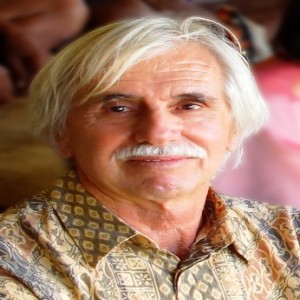
Monday Apr 18, 2022
093: Complexity and the Subaks of Bali with Steve Lansing
Monday Apr 18, 2022
Monday Apr 18, 2022
In this episode, Michael speaks with one of his intellectual heroes, Dr. Steve Lansing. Steve is an external professor at the Santa Fe Institute and the Vienna Complexity Hub, an emeritus professor of anthropology at the University of Arizona, and a senior research fellow at the Stockholm Resilience Centre.
Steve and Michael talk about Steve’s work with the Balinese Subak irrigation communities, including his understanding of their water use and management practices that are mediated by their water-based religion. Steve also describes the effects that green revolution techniques and technologies had on the Subaks, how local actors responded to this disturbances to their traditions, and what role Steve himself played in these responses. Finally, Steve talks about his more recent work in Bali, which includes an experiment to examine whether the Subak farmers can save water by flooding their paddies less, and thereby reduce methane emissions while also producing more rice.
Steve’s website: http://www.slansing.org/
References:
Lansing, J. S. 2012. Perfect order: Recognizing complexity in Bali. Princeton University Press.
Lansing, S. 1991. Priests and Programmers: Technologies of Power in the Engineered Landscape of Bali. Princeton University Press.
Lansing, J. S., N. N. Chung, L. Y. Chew, and G. S. Jacobs. 2021. Averting evolutionary suicide from the tragedy of the commons. International journal of the commons 15(1):414.
